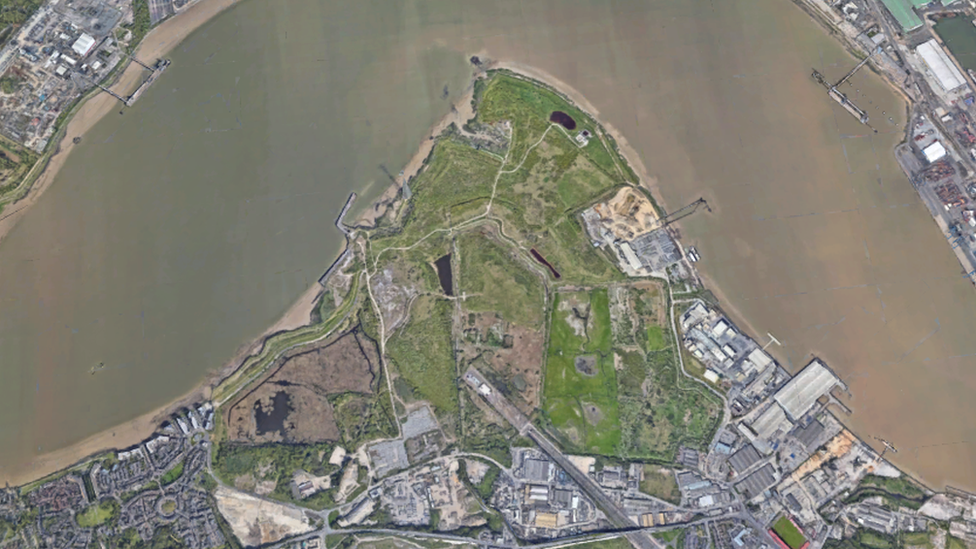London Resort: Theme park firm disputes Kent site's wildlife status
- Published
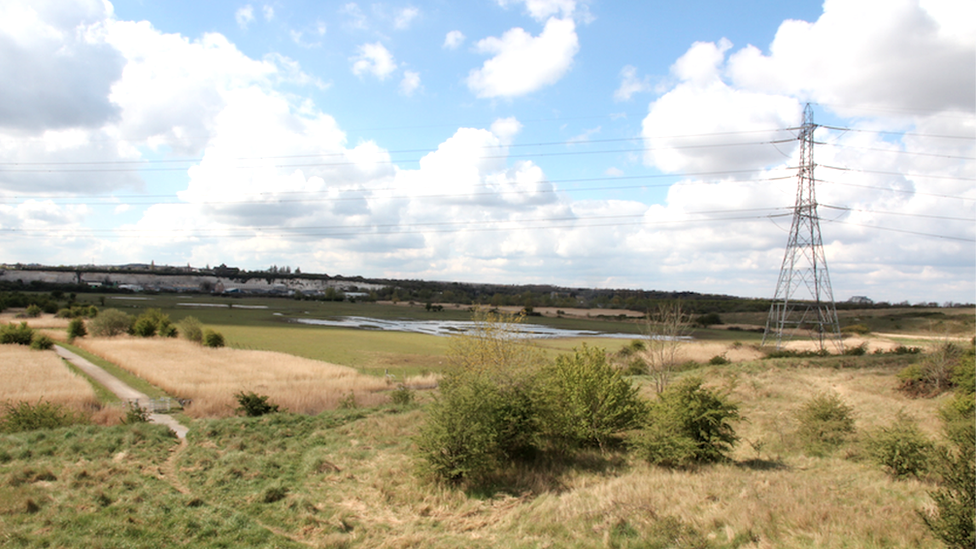
Swanscombe Peninsula is home to thousands of species of plants and animals
Developers hoping to build a £2.5bn theme park on a wildlife haven have challenged the site's protected status.
London Resort claims Natural England is attempting to "frustrate" its plans to build on Swanscombe Peninsula in Kent.
The area was protected as a site of special scientific interest (SSSI), due to its "enormous value as a green space and refuge" for people and wildlife.
Conservationists said the objection was a "transparent" attempt to undermine the ecological importance of the site.
An examination of plans to build the complex - including two theme parks and four hotels - has been delayed while developers update plans in response to the protected status.
In its objection, London Resort alleges Natural England has taken a "blanket" approach, covering most of the peninsula within the SSSI, in an attempt to "frustrate the [planning] application, rather than to protect and safeguard areas".
It says updated wildlife surveys from 2020 "substantially weakens the case for the notification of much of the site as a SSSI".
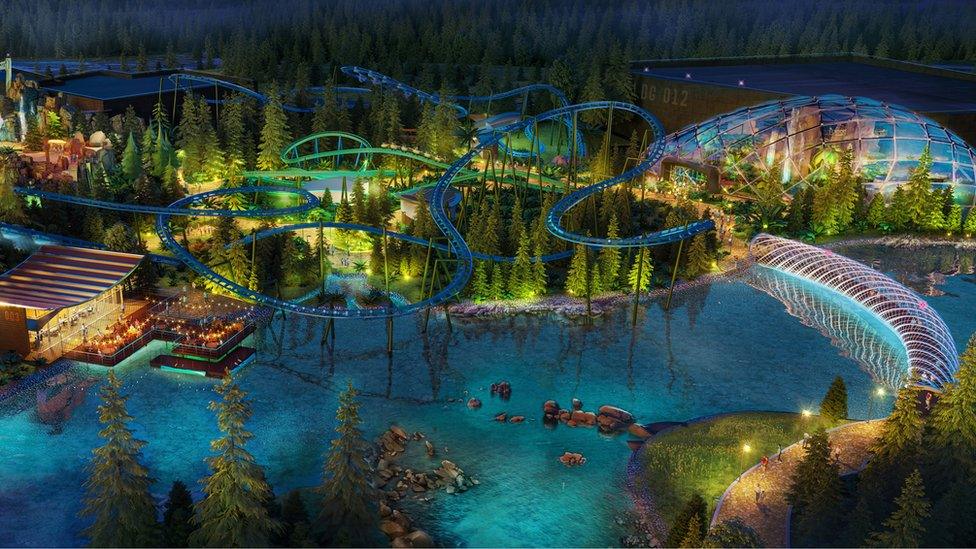
Plans for a huge theme park on the River Thames were first revealed in 2012
Andy Martin, London resort's communications director, claimed Natural England's decision was not based on "compelling or robust scientific evidence".
The company said it was committed to "protecting and enhancing natural habitats", but warned biodiversity would suffer if the site remains unmanaged.
The London Resort said a lack of management had already led to a reduction in the number of plant and insect species.
But Jamie Robins, of invertebrate charity Buglife, described the objection as a "transparent PR effort that misrepresents the data of their own wildlife surveys".
"London Resort are promoting the idea that they are saving wildlife when the reality couldn't be further from the truth."
The company's own summary of the 2020 surveys found 1,446 insect species, external, more than 200 of which had a special conservation status, he said.
Many of the UK's most precious wildlife sites - such as the chalk grasslands of the South Downs National Park - require management to prevent them turning into scrub and woodland, Mr Robins said.
"All of our internationally important heathlands and chalk grasslands would turn to woodland and lose diversity without management."
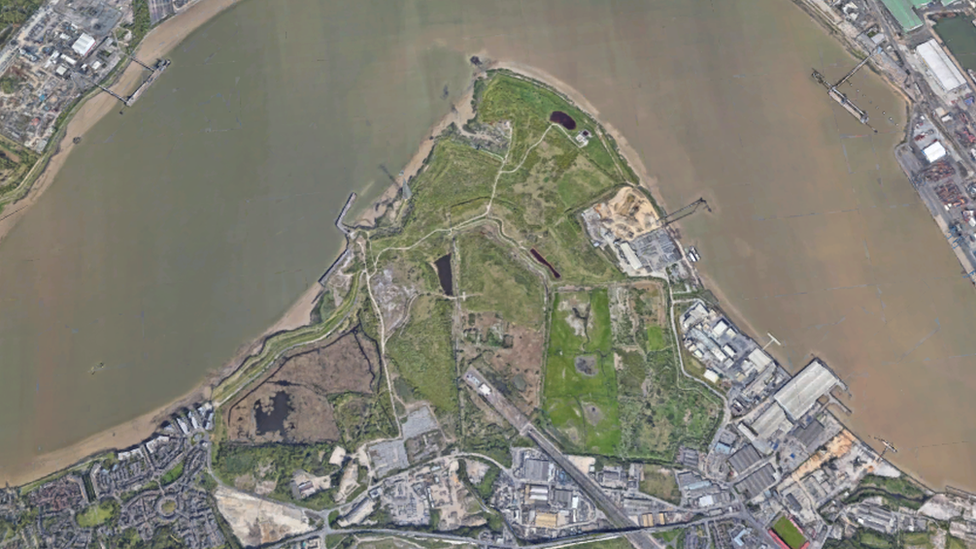
Developers want to build two theme parks and four hotels on the Swanscombe Peninsula
Rather than being used for a theme park, Mr Robins said the SSSI status should help to secure funding to manage the peninsula as a protected wildlife site and legally ensure wildlife was a priority.
Save Swanscombe Peninsula, a campaign group opposing the development, said: "London Resort are showing their true colour by now objecting to Natural England's SSSI designation which would protect the habitat and rare wildlife."
Natural England has been contacted for comment.
If the objections are not resolved, Natural England's board members will meet to consider the points raised and decided whether to confirm the SSSI status.

Follow BBC South East on Facebook, external, on Twitter, external, and on Instagram, external. Send your story ideas to southeasttoday@bbc.co.uk.
Related topics
- Published11 March 2021
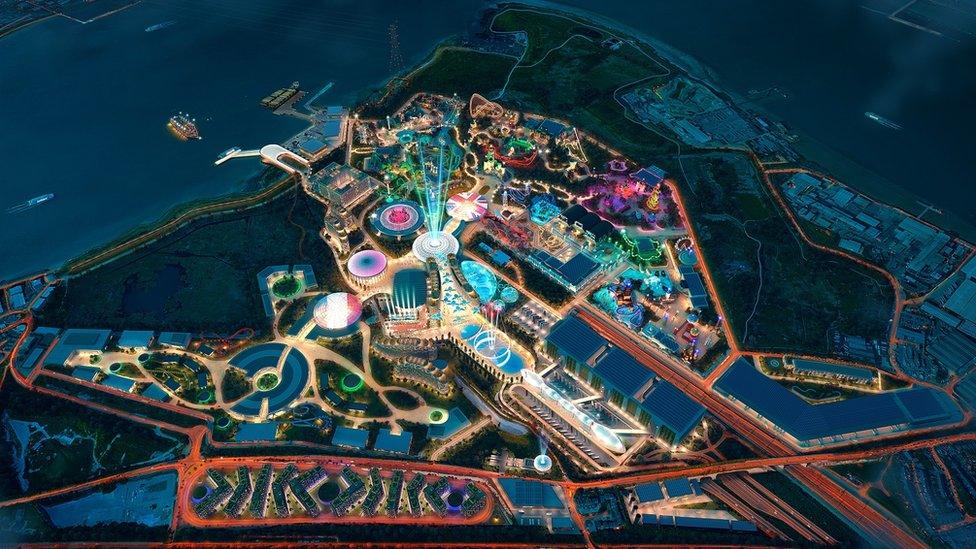
- Published18 May 2021
